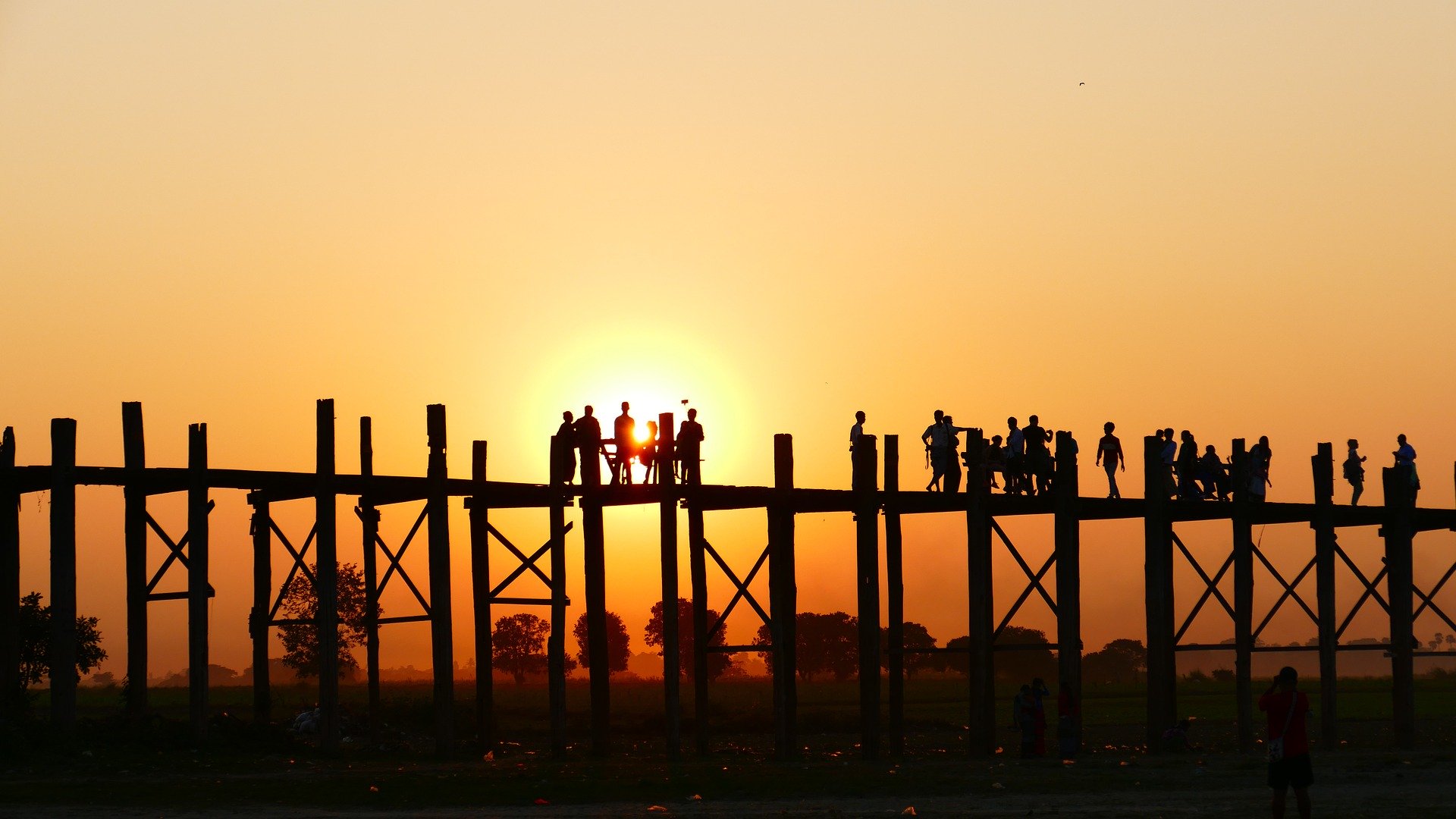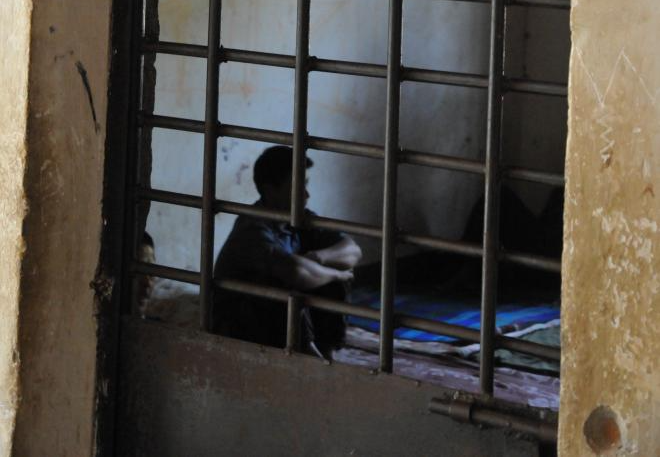|
|
| “Disregard for human rights, dignity, democratic values and justice will hurt us to the core” |
|
Statements issued by Myanmar Civil Society Organizations
03 April 2020
The current COVID-19 pandemic has clearly demonstrated that national and territorial borders offer little protection – contrary to what the Myanmar Government may have initially believed when the corona virus first appeared in Wuhan, China some 2390 km away.
 Photo credit: LoggaWiggler at Pixabay Photo credit: LoggaWiggler at Pixabay
As the outbreak has unfolded across the globe, Myanmar authorities have persistently claimed to not have any cases of Covid-19 infection inside its borders. For as long as three months, they have watched and done nothing to prepare. For a country with the lowest ranked public health care system globally due to decades of underinvestment, neglect, and armed conflict, the current crisis - in terms of the magnitude of impact and the scale of interventions required – very likely poses the biggest challenge the country has ever faced. Any further missteps are likely to be even more costly in terms of human lives, and broader social, economic and political consequences.
It is crucial that the Government does not further marginalize the hundreds of thousands of people who are already living in very precarious situations and circumstances -- including internal displaced populations, stateless populations, migrant workers, workers who have lost their jobs due to the pandemic, prisoners of conscience, disabled persons, and the elderly -- in their responses to COVID-19. So far, the signs are not encouraging. While government efforts should have been concentrated on pandemic preparedness, militarization in the ethnic areas has continued relentlessly. In particular, fighting has escalated between the military and the Arakan Army in Rakhine and Chin states, leading to the displacement of tens of thousands more people. While many have already lost their lives in the conflict, including children and the elderly, those who survive have had to take shelter in the nearby towns under the makeshift flimsy camps, without any means whatsoever to take precautionary measures against the virus infection.
Hence, as this new layer of crisis unfolds on top of the already existing crises, Myanmar CSOs are joining together to point the way forward, issuing two statements consecutively. The first statement, issued on March 28, 2020 by 251 CSOs, calls on the Myanmar Government to respond to the emergency situation, building on the values of human rights, human dignity, democracy and justice. The second statement, issued on March 30, 2020, signed by 423 CSOs from across the ASEAN region, urges support for the UN Secretary General’s call for immediate unilateral ceasefire in all active armed conflicts as not only “a prudent step but a moral imperative”, while putting human security and social justice at the core of their response.
TNI stands in solidarity with civil society organizations in Myanmar amidst this crisis as they keep pushing for real social justice, which many of us believe to be the most effective long term vaccine needed to prevent future disasters or pandemics from recurring and to make possible the forging of a better trajectory for the country post-COVID-19.
|
|
|
|
| |
|
|
| |
|
| |
| Joint Call for Action: Protecting public health and safety from COVID-19 |
|
The urgent need to enhance measures in Myanmar prisons and detention facilities to prevent outbreaks
06 April 2020
As COVID-19 has already caused more than 70,000 deaths worldwide, the Myanmar Authorities have to prepare for the worst. While the number of confirmed cases in the country is still low - 21 people had tested positive by the 6th of April 2020 - other Southeast Asian nations such as Thailand, the Philippines, Malaysia, and Indonesia have already reported thousands of cases each.
 Photo credit: Tom Kramer (TNI) Photo credit: Tom Kramer (TNI)
Detention conditions are known to greatly exacerbate the risks of contagious diseases: the World Health Organization (WHO) considers that prisoners are 100 times more likely to contract Tuberculosis (TB) than the civilian population, and are disproportionately affected by malnutrition, HIV and hepatitis. The rapid spread of COVID-19 prompted the WHO to warn Governments about the especially acute risks posed by potential outbreaks in prisons and other detention facilities. Their recommendations are especially relevant for Myanmar, as the country’s prisons operate at an average 140% of their maximum occupancy capacity and are therefore seriously overcrowded.
Potential outbreaks of COVID-19 in Myanmar prisons directly threaten the health of thousands of inmates, prison personnel and their respective families. These could also result in deadly spillover of the virus into neighbouring communities. Moreover, the greater vulnerability of prisoners to infection could rapidly lead to mounting tensions, unrest and security concerns within prisons.
Earlier this month, riots prompted by COVID-19 fears erupted in prisons in Italy, Colombia and India, resulting in dozens of deaths, injuries and escapes. In an unprecedented move aimed at reducing prison overcrowding and preventing COVID-19 outbreaks in detention facilities, Australia, the USA, France, the UK, Ireland, Iran, Bahrain, Afghanistan, India and Indonesia all announced the early release of large numbers of prisoners considered to pose a low risk for public safety.
Myanmar prison authorities have started to take preventive measures such as the provision of hand soap and basins for visitors. The procurement of infection control equipment is reportedly also under way. While these are positive steps, it is urgent that the Myanmar Government and relevant Departments and Authorities adopt a more comprehensive plan to prevent and mitigate COVID-19 outbreaks in the country’s detention facilities. These include prisons, but also labour camps, police stations, juvenile camps and closed drug treatment and rehabilitation centres, including those in conflict-affected areas.
The Assistance Association for Political Prisoners (AAPP) requested earlier this month, among other measures, a mass amnesty for prisoners meeting specific criteria. Signatories of this declaration join their call for action. A set of key recommendations and priority interventions is proposed here. These, however, should not be considered exhaustive.
|
|
|
|
| |
|
|
| |
|
|
- Archive main page
- 2020
- April
- “Disregard for human rights, dignity, democratic values and justice will hurt us to the core” and: Joint Call for Action: Protecting public health and safety from COVID-19
- < PreviousNext >
|